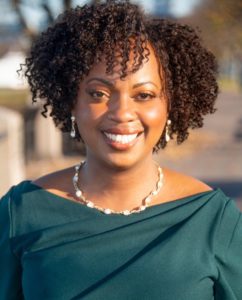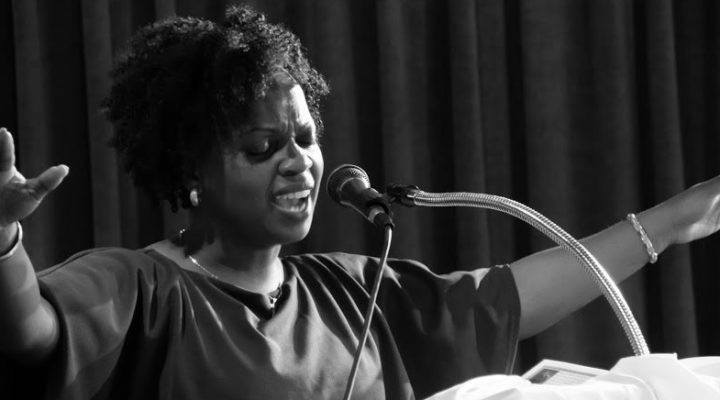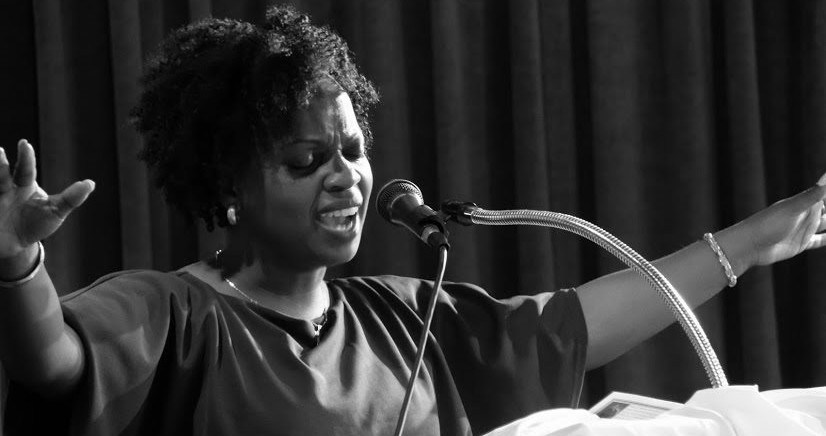When the Baptist World Alliance last month named Marsha Scipio director of its global aid organization, BWAid, it said her job would be to respond to people suffering in times of crisis by networking with other agencies to boost sustainability and capacity.
All of that, and more, was on her plate when she started the position Feb. 1.
Working from her home in Queens, N.Y., Scipio spent her first week in phone and virtual meetings trying to arrange aid shipments with partners in and around Myanmar, where a recent military coup has resulted in widespread violence by government forces against protesters. She juggled that challenge with a similar situation in the Central African Republic, where civil war has resulted in another humanitarian crisis.

Marsha Scipio
“These have been very real issues right off the bat, and we are still in the strategy stages,” Scipio said in a Feb. 4 interview.
BWA officials have expressed confidence that Scipio is up for the challenge. Her resume says so, too. Her education includes a bachelor’s degree from Yale University, a juris doctorate from Georgetown University Law Center and a master of divinity from Princeton Theological Seminary. Her ministry experience has ranged from overseeing a community and family life center in New York City to serving as associate general secretary of the American Baptist Churches USA with an emphasis on missional initiatives and partnerships.
She currently serves as youth pastor at the Historic Berean Baptist Church in Brooklyn, N.Y.
“We are blessed to welcome Rev. Scipio to the BWA team, and we prayerfully champion her leadership as she builds upon BWAid’s century of kingdom impact to guide it toward a strategic future,” BWA General Secretary Elijah Brown said in the Jan. 27 announcement.
Scipio spoke with Baptist News Global about the evolution of her faith and ministry and about embracing the ever-challenging demands of her calling.
Where did you go to church growing up?
I grew up Catholic. I’m from Trinidad and Tobago. We immigrated to Brooklyn when I was 9. At that point we went to Catholic churches occasionally. It wasn’t until I was in college, during my freshman year at Yale, that I joined a Baptist church and got saved. My current church is Berean Baptist Church in Brooklyn.
How did that transition to being a Baptist come about?
I started singing in the Yale Gospel Choir, and one of my friends in the choir belonged to a Baptist church, and she would invite me to go with her to her church in Hartford, (Conn.) I really started to enjoy the worship and teaching. I started to have a much better understanding of what it meant to have a relationship with God, and I started learning more about the Baptist church. And eventually I said “yes” and got saved and just stayed there. That was at Mount Moriah Baptist Church in Hartford.
When I moved back to New York, I started attending Zion Baptist Church in Brooklyn. When I left to go to law school in Washington, I became part of Metropolitan Baptist Church in D.C. Eventually I came back to New York to do my field placement for seminary. Berean (Baptist Church) is where I did that field placement.
What drew you to seminary after going to law school?
This a pivotal moment for me. For me, any work I was doing always was tied to my calling to serve young people and change the trajectory of their lives. During law school, I had internships at the Department of Justice, and I thought that’s where I wanted to be, but at the same time I wasn’t sure I wanted to practice law in the traditional sense.
So, I came back to New York and a friend recommended an organization called Legal Outreach. It’s not faith-based but it is faith-led. I taught law to middle and high school teachers and there was a college-bound component where we would host constitutional debates with students. During some of our unofficial “Fat Fridays” I also taught a Bible study. It was completely optional. I had 35 to 40 youth coming to those sessions. They were primarily unchurched youth who wanted to learn more about God.
It was at this time that I started to hear the Lord call me to seminary. I felt led to Princeton because they had a youth ministry program. My intention was to develop curriculum to help young people develop a passion for Christ and to live out their faith — to not just talk about Jesus but for their behavior to reflect a relationship with Jesus. My idea also was to return to New York and to continue with Legal Outreach.
And what actually happened?
After my first year of seminary, my summer placement field supervisor encouraged me to do international programs. That led me to Liberia, where I then felt the Lord sending me. I served at Providence Baptist Church in Monrovia. Liberia was just recovering from civil war at that time. There were a lot of burned-out buildings, and the poverty was terrible. But the people I met there loved the Lord recklessly.
“There were a lot of burned-out buildings, and the poverty was terrible. But the people I met there loved the Lord recklessly.”
This is where my faith went to new depths. It was there that I heard the Lord say clearly to me, “I’m calling you to preach the gospel, to go into ministry.” I remember it very clearly, and the Spirit spoke to me in the beginning of Isaiah 61 to confirm what I was hearing. And I had always known it. I had been fighting it. But at that point I knew I didn’t have a choice.
You mentioned “the Micah mandate” as the theme of your calling and ministry. How does it apply to your role at BWAid?
It’s a clear directive to do justice. It’s a clear roadmap about how we are to live out our faith. I believe as a collective Christian family, we are called to place God first and treat each other kindly and to ensure our brothers and sisters inhabit equitable spaces. Even before I came into ministry, I was very aware of this mandate. It started for me in college, this imperative that we have to be active in working toward a more equitable and just existence for everyone. I’m passionate about ministering to young people, but also empowering them to create spaces that are reflective of the kingdom of God. I see going to BWAid as an opportunity to exercise that mandate to walk alongside and empower our brothers and sisters who are in need in very tangible ways.
Has your exposure to international ministry shaped your Baptist identity?
Yes, and also my ministry as a Baptist. In Liberia, I saw clearly the role the church should have not only in ministering to people in churches but also to wider communities. I witnessed how church should be involved in rebuilding a community ravaged by civil crisis. I saw what it means for the church to be the church in very tangible ways. As I continued to travel, it strengthened my own faith. It helps me realize and celebrate the diversity in the Baptist faith, and I came to believe in the power of the priesthood of all believers across faith traditions, not just among Baptists. As a Christian in my own context, living in New York City — a multi-ethnic space — has given me an appreciation of my own community. I see God at work in so many different contexts that it can only inspire me to love God more and to love God’s people unapologetically.
“I see God at work in so many different contexts that it can only inspire me to love God more and to love God’s people unapologetically.”
Can you be very effective in your mission at BWAid while working in a completely or mostly virtual environment?
Yes, because the pandemic has forced us to do and think very differently and to integrate technology into everything we do. One of my goals is to continue bringing together our storied history and vision with a strategic network. The pandemic has given us a head start as we think about where we would like to be when it comes to the technological part.
What are the top one or two issues at BWAid that need your attention right now?
We have been having meetings about the situation in Myanmar, about the ongoing crisis there. We are working through how we, as BWAid, can provide a comprehensive response. We do have three BWA member bodies working on the ground there, and we already have been in touch with them. The other piece we are working on is the situation in the Central African Republic. They, too, have been involved in civil war and are requesting money to provide water.
All of that during your first week on the job. How do you handle all of that?
It is amazing and it stresses the importance of prayer, and a lot of prayer has been happening from day one. I do believe this is a calling from God. It’s not a job. And I believe God will provide guidance.


